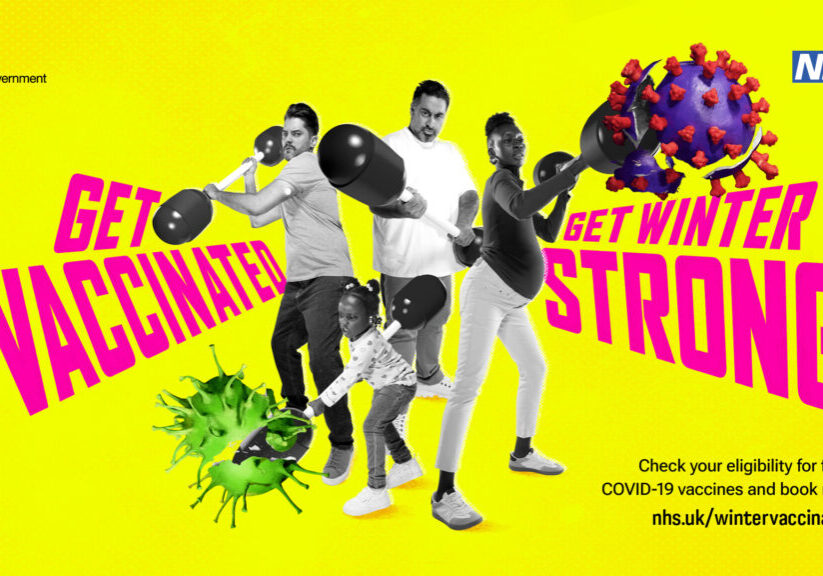Get Winter Strong!

Millions of children and adults across England will be offered their flu, COVID-19 and respiratory syncytial virus (RSV) vaccinations as the NHS sets out plans for protection ahead of winter.
The vaccines provide vital protection to keep people from developing serious illnesses and ending up in hospital during busy winter months.
It’s important that those eligible come forward when they can to top up their protection ahead of winter, as immunity wanes over time and viruses change and adapt each year.
The flu vaccination campaign launched on 1 September, with appointments running across autumn and winter to provide vital protection to prevent people from developing serious illnesses and ending up in hospital during the busy winter months.
The flu vaccine is usually given to children as a quick and painless spray up the nose – without the need for an injection – unless your child cannot have porcine gelatine in medical products, in which case an injected flu vaccine is available as an alternative.
Flu season usually peaks in December and January, so starting vaccinations in autumn will ensure those most at risk are protected during the colder months when people gather indoors and viruses spread.
For those adults eligible for both, the NHS will make flu and COVID-19 jabs available at the same time, giving the option to get protection from both viruses in one visit. However, it is more effective for people to have the RSV vaccination on a different day from any flu or COVID-19 vaccinations.
Steve Russell, NHS National Director for Vaccinations and Screening said: “The flu and COVID-19 vaccines are our best defences against these viruses and can be lifesaving – so I would urge everyone eligible to book their jabs when they become available, to protect themselves and people around them.
“This year for the first time, we will also be offering the RSV vaccine to older people and pregnant women, to provide vital protection against this dangerous virus for those at greatest risk.
“These viruses leave thousands of people in hospital each year, and the vaccinations help us to keep more people well during the winter months when we expect the NHS to again be under significant pressure – so please come forward as soon as you are invited.”
Adult flu and COVID-19 appointments will be available through the NHS App and website, or by calling 119 for free. Flu vaccines will also be available through local GP practices and pharmacies.
The nasal flu vaccine is the most effective vaccine for children aged 2-17 years but if this is not suitable the GP or practice nurse may be able to offer a flu vaccine injection as an alternative.
In line with advice from the Joint Committee on Vaccination and Immunisation, those eligible for a flu vaccine this year include:
From 1 September:
- pregnant women
- all children aged 2 or 3 years on 31 August 2024
- primary school aged children (from Reception to Year 6)
- secondary school aged children (from Year 7 to Year 11)
- all children in clinical risk groups aged from 6 months to less than 18 years
From 3 October:
- those aged 65 years and over
- those aged 18 years to under 65 years in clinical risk groups (as defined by the Green Book)
- those in long-stay residential care homes
- carers in receipt of carer’s allowance, or those who are the main carer of an elderly or disabled person
- close contacts of immunocompromised individuals
- frontline workers in a social care setting without an employer led occupational health scheme including those working for a registered residential care or nursing home, registered domiciliary care providers, voluntary managed hospice providers and those that are employed by Those who receive direct payments (personal budgets) or Personal Health budgets, such as Personal Assistants.
Those eligible for an autumn Covid booster are:
- residents in a care home for older adults
- all adults aged 65 years and over
- persons aged 6 months to 64 years in a clinical risk group, as defined in the Green Book
- frontline health and social care workers and staff in care homes for older adults
Please visit www.nhs.uk for more information
